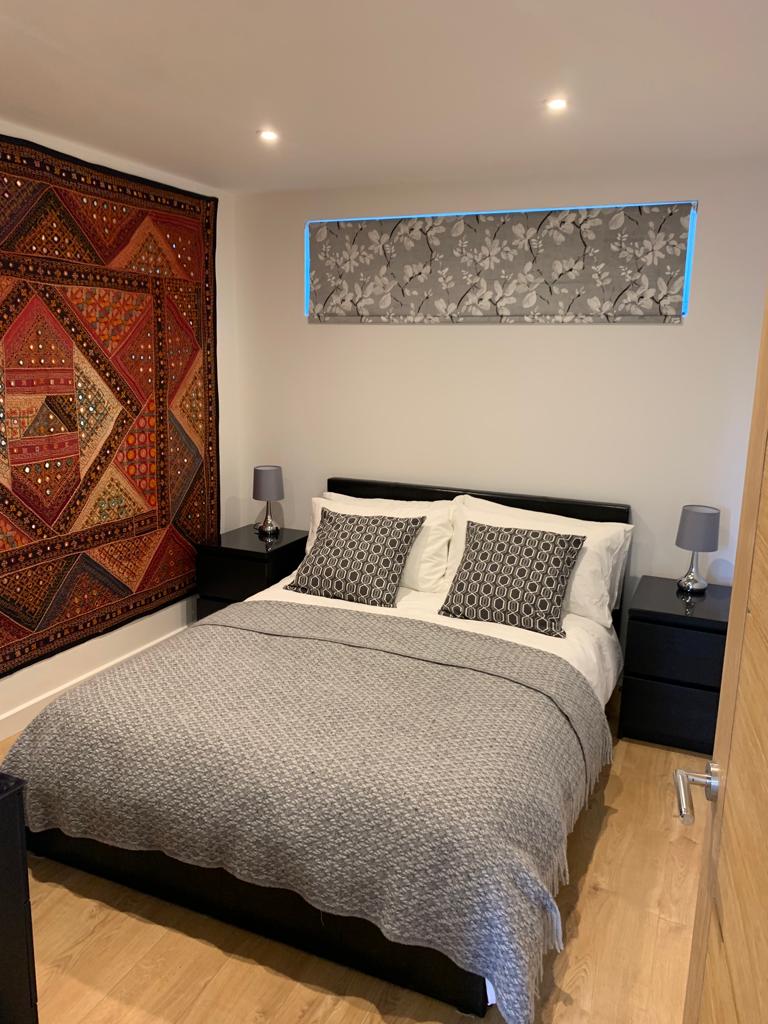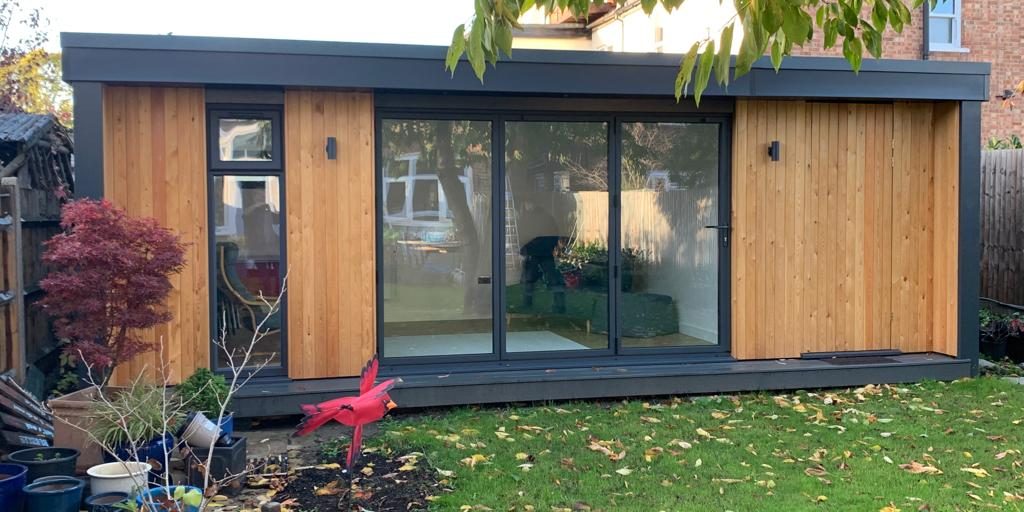For those considering financial opportunities in the garden, renting out a garden room in the UK could be an attractive option. Renting a garden room can provide extra income, especially if located in a tourist-friendly area. This additional income might not replace a full-time wage but can still make a difference financially.
Garden rooms can also offer a unique space for short-term rental, where tenants might enjoy a cosy stay while exploring local attractions. The flexibility of these rentals fits well with platforms like Airbnb, offering hosts the chance to meet new people and earn from unused space.
Legal regulations and planning permissions are crucial factors, and potential hosts need to be aware of local guidelines. Ensuring compliance with any rules will help landlords protect their property and reputation in the rental market.
Can I Rent Out My Garden Room?
Yes, you can rent out your garden room in the UK, potentially generating extra income, especially in tourist-friendly areas.
However, it’s crucial to navigate planning permissions, local regulations, and legal requirements for short-term rentals, ensuring compliance with laws regarding separate dwellings and material change of use.
Before renting out your garden room, consider factors such as tailoring the space for your target audience, setting competitive rental prices, and implementing effective marketing strategies to maximise its potential
Regulatory Framework for Renting Out Your Garden Room

Renting out a garden room in the UK requires navigating through planning permission, local regulations, and legal requirements for short-term rentals. Understanding each aspect is crucial to ensuring compliance with the law and making informed decisions.
Understanding Planning Permission
Before renting a garden room, it is important to check if planning permission is needed. Planning permission may be required if the garden room is to be used as a separate dwelling or if it involves a shift in how the property is used. Typically, garden rooms that serve as ancillary extensions do not need planning permission. However, when the space becomes a self-contained unit for independent living, involving a material change of use, planning permission may be necessary.
In Scotland, the rules can differ slightly, so landlords should verify the specific requirements in their area. Consulting with local planning authorities can provide clarity on whether planning permission applies to their specific situation.
Navigating Local Regulations and Material Change of Use
Local regulations also play a critical role in renting out garden rooms. Regulations may address factors such as occupancy limits, noise limitations, and building code compliance. Adhering to local regulations ensures that the property usage aligns with community standards and zoning laws.
When a garden room undergoes a material change of use, it may be classified differently, triggering additional regulations. This can happen when a room is rented out separately from the main dwelling. Landlords should communicate with local councils to understand the full scope of applicable regulations in their vicinity.
Legal Requirements for Short-Term Rentals
Renting a garden room for short periods, like through Airbnb, introduces specific legal obligations. These include adhering to health and safety standards such as fire safety and sanitation requirements. Additionally, landlords may need to obtain specific licences or permits, depending on local council rules.
Short-term rentals could also affect insurance policies, so a review of home insurance coverage or a consultation with an insurance provider is advisable. Staying informed about legal requirements protects landlords from potential fines and legal disputes and helps ensure a successful rental experience.
Maximising Your Garden Room’s Potential
To maximise the potential of renting out a garden room, consider tailoring it to suit your target audience. Setting an attractive yet competitive rental price is key. Marketing your garden room effectively ensures it reaches the right people, enhancing your chances of generating extra income.
Tailoring the Space for Your Target Audience
Understanding who your potential renters are can significantly influence how you tailor your garden room, garden office, or studio. If targeting young professionals or entrepreneurs, focus on creating a functional home office with ergonomic furniture and high-speed internet. For guests seeking a tranquil retreat, consider comfy seating, cosy bedding, and ambient lighting.
Adding amenities like a mini-fridge, microwave, or small bathroom can also increase appeal. Consider ventilation and insulation for year-round comfort, especially important for a garden office. A well-tailored space not only boosts satisfaction but justifies higher rental rates.
Setting the Right Rental Price
Setting a competitive rental price involves analysing local market trends and understanding what similar properties charge. Research sites like Airbnb, Booking.com, and VRBO to evaluate prevailing prices. Calculate your costs, including maintenance and utilities, to ensure profitability.
Consider pricing strategies like seasonal rates to attract more tenants or weekly discounts for longer stays. Ensure your pricing reflects the quality and amenities of your garden room or garden office while staying affordable compared to alternatives. Regular price reviews can help keep up with market changes.
Effective Marketing Strategies
Effective marketing can make a garden room stand out in the sharing economy. Eye-catching photos showcasing unique features will capture potential renters’ attention. Descriptive listings on platforms like Airbnb or Booking.com can detail amenities, location benefits, and local attractions.
Social media platforms and local community groups can also be valuable resources for spreading the word. Positive reviews from previous guests amplify credibility, making it easier to attract new rentals. Offering a comprehensive guide for guests, complete with local dining and activity recommendations, can further enhance the experience and your room’s appeal.
The Practicalities of Garden Room Letting
Letting out a garden room in the UK involves careful planning. Key considerations include maintenance needs, ensuring the right amenities are available, and the interaction with guests. These aspects are crucial for providing a comfortable stay to visitors.
Maintenance and Upkeep
Maintaining a garden room is essential for letting. Regular upkeep ensures that the space remains inviting and in good condition. This includes inspecting the roof, walls, and flooring for any signs of damage. Routine cleaning and pest control should also be prioritised.
Consider the cost of water, electricity, and heating. Keeping the exterior attractive may involve gardening or landscaping. A well-maintained outdoor space enhances the appeal and can add to its value.
A clear maintenance schedule helps in addressing these tasks consistently.
Amenities and Services
Providing essential amenities can make a garden room more attractive to potential renters. Furniture, bedding, and kitchen appliances are basics that guests expect. Offering Wi-Fi, TV, and air conditioning can further enhance the comfort level.
The garden room can serve as a self-contained living space with these features. If space allows, including a bathroom or kitchenette may appeal to those seeking a separate dwelling or independent living space.
Think about the needs of guests and what would make their stay enjoyable.
Meeting and Greeting Guests
Interaction with guests is an important part of the letting process. A warm welcome can set a positive tone for their stay. It’s essential to explain how appliances work and address house rules such as noise levels and parking.
Consider being available for any questions during their stay. Meeting new people through letting can be rewarding, offering opportunities for cultural exchange and introducing them to the local area.
Proper guest interaction not only enhances their experience but can lead to positive reviews and repeat bookings. Always aim for clear and courteous communication to ensure satisfaction.
Exploring the Benefits of Renting Out Your Garden Room
Renting out a garden room in the UK can bring several advantages. From earning extra money to promoting cultural exchange, a garden room provides unique opportunities. It can also serve as a detached living space that supports privacy.
Generating Extra Income
Renting out a garden room offers a way to earn additional income. Homeowners can make the most of their outdoor space by hosting guests through platforms like Airbnb. In areas popular with tourists, short-term lets can provide a steady stream of visitors. This financial benefit is especially appealing as it requires minimal maintenance compared to the main house, letting owners see a return on their investment without significant effort.
Contributing to the Sharing Economy
By renting out a garden room, homeowners participate in the sharing economy. This allows for the use of under-utilised property to help travellers find unique and local accommodation. This movement fosters community interaction and supports sustainable living practices. Renting out such spaces benefits both homeowners and guests, creating an engaging environment that encourages cultural exchange and community growth.
Creating Opportunities for Independent Living
A garden room can serve as an independent living space. These rooms are ideal for individuals seeking privacy or needing a self-contained unit outside the main residence. Families with older children, or those caring for a loved one, may find a garden room a practical solution. This arrangement provides autonomy while still being close to family, maintaining connections and support where needed.
Pros of Having a Separate Dwelling
Garden rooms are valuable as separate dwellings. They offer distinct advantages over shared living areas. Privacy and personal space are appreciated by both owners and renters. This setup is appealing to working professionals and remote workers looking for peaceful surroundings. Additionally, it’s easier to manage and maintain, fostering a functional and welcoming environment without the complexities associated with larger rental properties.
Need further advice? Garden Office Buildings can help!


